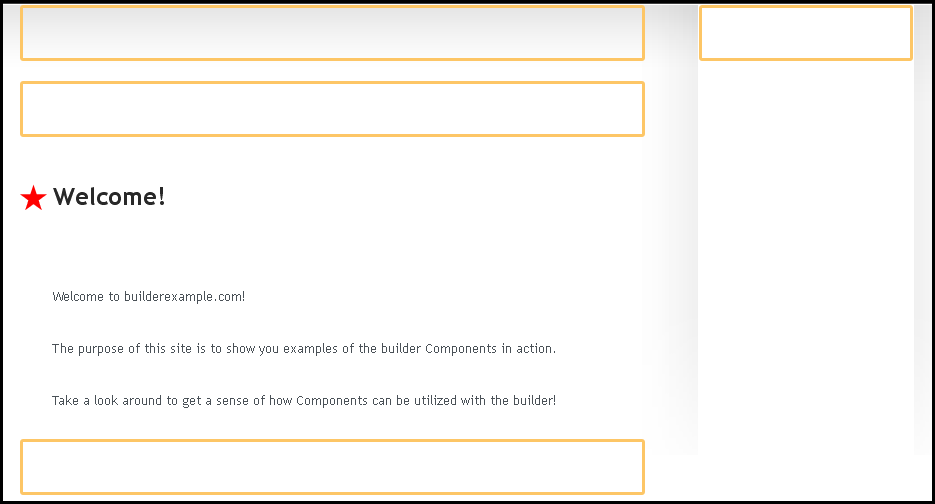Content Locations: Difference between revisions
mNo edit summary |
mNo edit summary |
||
| Line 15: | Line 15: | ||
====Example of content locations html==== | ====Example of content locations html==== | ||
<source lang="html4strict"> | <source lang="html4strict"> | ||
<div id="location_0" class="location"> | <div id="location_0" class="location"> | ||
Content components can be placed here using the toolbar | Content components can be placed here using the toolbar | ||
| Line 23: | Line 23: | ||
Content components can be placed here using the toolbar | Content components can be placed here using the toolbar | ||
</div> | </div> | ||
</source> | </source> | ||
Location 0 is required, but there is no limit to how many content locations you can create. | Location 0 is required, but there is no limit to how many content locations you can create. | ||
Revision as of 21:23, 13 January 2009
Content Locations are areas within your page, pages, or directory folders where a Component can be added.
Content locations as they display while editing a website
Content Location Code:
Content locations are div elements specified as areas for site content where you can drag and drop content components using the Component Toolbar. The only required content location is #location_0, but you can have as many locations as you want in your theme. In most themes there are only 2 or 3 locations, used for columns on the site layout.
Example of content locations html
<div id="location_0" class="location">
Content components can be placed here using the toolbar
</div>
<div id="location_1" class="location">
Content components can be placed here using the toolbar
</div>
Location 0 is required, but there is no limit to how many content locations you can create.
Since Viviti is a content management system, you create all content using the Viviti editor toolbar after logging in. You will be able to place Optional Content Components into any content location in your theme. Content locations can be surrounded by as much html as you like. Viviti will only manage content within the specified content locations.

